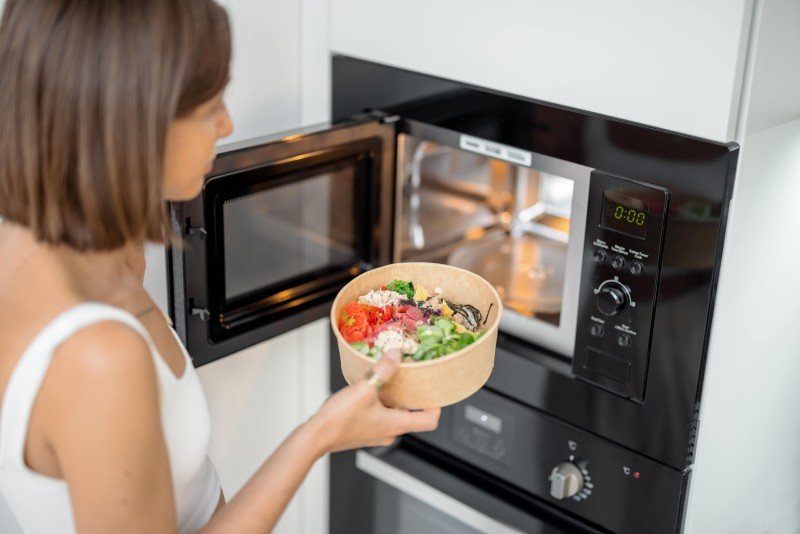10 Wrong Answers To Common Sales Ovens Questions Do You Know The Correct Ones?

The Comprehensive Guide to Sales Ovens: Understanding Their Importance, Types, and Best Practices
Sales ovens, a classification of commercial cooking equipment, are key players in the cooking and foodservice industry. These appliances, developed to prepare food in big amounts effectively, are necessary in restaurants, catering services, and other food facilities. This article looks into the importance of sales ovens, their types, and best practices for picking and utilizing them successfully.
What Are Sales Ovens?
Sales ovens, broadly defined, are cooking devices utilized primarily in business kitchen areas to cook, bake, or heat different food items at scale. Their style permits them to handle higher volume cooking compared to basic residential ovens. Provided the nature of food service, sales ovens often incorporate innovative innovations that promote speed, performance, and even cooking.
Importance of Sales Ovens in the Food Industry
Sales ovens play an essential role in food production for numerous reasons:
- Efficiency: Sales ovens can prepare food quicker and equally than conventional ovens, permitting chefs to prepare meals in less time.
- Consistency: With exact temperature level controls, sales ovens guarantee that the food is cooked equally each time, maintaining quality throughout countless portions.
- Flexibility: Many sales ovens can handle numerous cooking methods consisting of baking, roasting, broiling, and even steaming, making them ideal for diverse menus.
- Energy Savings: Modern sales ovens are typically designed to be energy-efficient, minimizing functional expenses for services.
Kinds Of Sales Ovens
The marketplace offers a range of sales ovens, each suited for specific cooking requirements and types of food. Here are the most common types:
| Type of Oven | Description | Best For |
|---|---|---|
| Convection Ovens | Employ a fan to flow hot air, making sure even cooking. | Baking and roasting products. |
| Combi-Ovens | A mix of convection and steam cooking, supplying flexibility in cooking techniques. | Diverse menus requiring steaming and baking. |
| Conveyor Ovens | Use a moving belt to continuously cook food, ideal for high-volume operations. | Quick food and pizza. |
| Deck Ovens | Feature separate compartments (decks) that can be separately controlled, offering high efficiency. | Craftsmen bread and pastries. |
| Rotisserie Ovens | Created to slowly roast meat on a spit, providing tender and juicy results. | Roasted meats. |
Choosing the Right Sales Oven
Selecting the suitable sales oven for a particular organization requires factor to consider of several factors:
- Volume Needs: Assess the volume of food that requires to be prepared. Greater volume suggests deciding for conveyor or combi-ovens.
- Menu Diversity: Understanding what kind of dishes will be prepared can guide the selection process. For example, a bakeshop may require a deck oven, while a restaurant might take advantage of a convection oven.
- Space Availability: Measure kitchen area to ensure the ovens fit correctly and have required ventilation.
- Spending plan: Commercial ovens can differ considerably in rate, so establish a budget that thinks about long-term functional cost savings.
- Energy Efficiency: Opt for ovens that have energy scores to keep utility costs workable.
Best Practices for Using Sales Ovens
Successfully operating a sales oven involves more than easy usage. Here are some best practices to bear in mind:
- Regular Maintenance: Schedule routine upkeep to clean and inspect the performance of the oven. This guarantees durability and effectiveness.
- Preheating: Always preheat the oven to the desired temperature before placing food inside for consistent cooking outcomes.
- Utilize Thermometers: For precision, use an oven thermometer to make sure that temperature levels stay consistent, specifically for baking.
- Follow Cooking Times: Adhere to recommended cooking times based on the type of food being prepared. Modifications might be required for various ovens.
- Prevent Overcrowding: Ensure adequate space around food products in the oven to permit appropriate air circulation.
The Future of Sales Ovens
As technology advances, so do the abilities of sales ovens. Developments such as smart technology, energy-efficient styles, and enhanced security functions are becoming more popular. These advancements promise to boost cooking effectiveness while likewise fulfilling sustainability goals.
FAQs about Sales Ovens
Q1: How do I clean my sales oven?
A: Regular cleansing includes getting rid of any food debris, wiping down surfaces with non-corrosive cleaners, and following specific cleaning recommendations from the producer.
Q2: What's the lifespan of a business oven?
A: Typically, a well-maintained business oven can last anywhere from 10 to 20 years, depending upon use and maintenance.
Q3: Can sales ovens be used for baking?
A: Yes, lots of kinds of sales ovens, particularly convection and deck ovens, are specifically designed for baking a series of items.
Q4: Are there energy-efficient alternatives for sales ovens?
A: Yes, a number of manufacturers use energy-efficient designs that lower energy consumption without sacrificing performance.
Q5: How typically should I perform upkeep on my sales oven?
A: It's advisable to carry out regular maintenance checks monthly or quarter, depending on usage levels. Furthermore, a comprehensive examination needs to occur a minimum of each year.
Sales ovens are indispensable in the modern culinary landscape. Their capability to cook large quantities of food efficiently makes them important for restaurants, catering services, and other food establishments. By understanding Ovens And Hobs , choosing the right oven, and sticking to best practices, food service organizations can optimize their cooking procedures, improve their offerings, and eventually delight their consumers with exceptional culinary developments.

